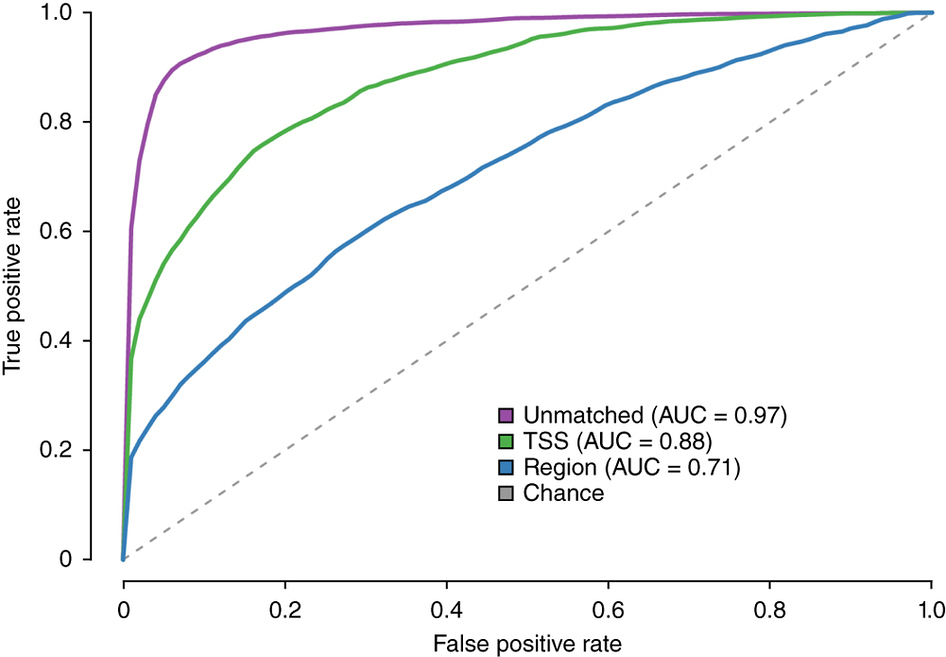Finding what's important in our genome

The software, called GWAVA, integrates an enormous amount of information about the way genes are regulated, and prioritises non-coding variants in the human genome. This helps researchers focus their research on the most promising candidates, potentially saving considerable time and resources.
In recent years scientists have found a lot of links between our genes and susceptibility to disease – but there is still a long way to go before we fully understand how DNA variation underlies disease. While much is known about the way protein-coding genes work, our three-billion-base-pair-long genome is bursting with other types of information. One of the big challenges in genomics is figuring out how non-coding regions of the human genome are involved in disease.
“The information provided by the ENCODE consortium, the 1000 Genomes Project and the NIH’s Roadmap Epigenomics project are extremely useful resources for understanding non-coding variants. But ranking that information is no small task. There is a lot of benign variation in our genome, so we needed a way to narrow down which regions play a role in disease.”
Paul Flicek Co-lead author from EMBL-EBI
The team investigated if a combination of information related to genes, genetic regions associated with regulation and genome-wide properties can be used to identify the most likely variants that contribute to disease in the non-coding part of the genome.
“GWAVA uses a classifier to discriminate apparently harmless non-coding variants from those that are likely to be involved in disease. We tested it out using several scenarios and found that it consistently prioritises the regions known to be associated with disease. This could be really useful for people who need to decide which mutations to look at as cancer drivers, for example.”
Graham Ritchie First author from EMBL-EBI and the Sanger Institute
The authors hope that using GWAVA predictions for non-coding variants in disease association studies will substantially improve the chances of finding genetic variants that are involved in human disease.
“We’ve combined freely available data to predict the impact of these variants in the non-coding region of the genome. Most disease-associated variants discovered to date fall outside genes. This tool can help us start to understand how they work.”
Professor Eleftheria Zeggini Co-lead author from the Sanger Institute
More information
Funding
This work was funded by the Wellcome Trust and by the European Molecular Biology Laboratory.
Participating Centres
- Wellcome Trust Sanger Institute, Hinxton, Cambridge, UK.
- European Molecular Biology Laboratory, European Bioinformatics Institute, Hinxton, Cambridge, UK.
Publications:
Selected websites
EMBL-European Bioinformatics Institute
The EMBL-European Bioinformatics Institute (EBI) is part of the European Molecular Biology Laboratory (EMBL) and is located on the Wellcome Trust Genome Campus in Hinxton near Cambridge, UK. The EBI grew out of EMBL’s pioneering work in providing public biological databases to the research community. It hosts some of the world’s most important collections of biological data, including DNA sequences (ENA), protein sequences (UniProt), the genomes of animals and plants, three-dimensional molecular structures, data from gene expression experiments, protein-protein interactions and reactions and pathways. EMBl-EBI’s many research groups are continually developing new tools to support the biocomputing community. EMBL-EBI provides essential compute infrastructure for the ENCODE project and coordinates ELIXIR, the emerging research infrastructure for life science data in Europe.
The Wellcome Trust Sanger Institute
The Wellcome Trust Sanger Institute is one of the world’s leading genome centres. Through its ability to conduct research at scale, it is able to engage in bold and long-term exploratory projects that are designed to influence and empower medical science globally. Institute research findings, generated through its own research programmes and through its leading role in international consortia, are being used to develop new diagnostics and treatments for human disease.
The Wellcome Trust
The Wellcome Trust is a global charitable foundation dedicated to achieving extraordinary improvements in human and animal health. We support the brightest minds in biomedical research and the medical humanities. Our breadth of support includes public engagement, education and the application of research to improve health. We are independent of both political and commercial interests.


